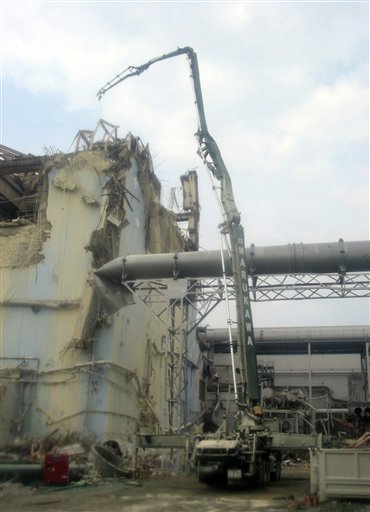submitted by Luis Kun
by Mari Yamaguchi, Associated Press - June 15, 2011

In this Monday, June 13, 2011 photo released by Tokyo Electric Power Co., a machine collects radioactive substances in the air for sampling at the Unit 3 of the crippled Fukushima Dai-ichi nuclear power plant in Okuma, Fukushima prefecture, northeastern Japan. (AP Photo/Tokyo Electric Power Co.) EDITORIAL USE ONLY
TOKYO (AP) — Japanese whalers caught two animals along the northern coast that had traces of radiation, presumably from leaks at a damaged nuclear power plant, officials said Wednesday.
Two of 17 minke whales caught off the Pacific coast of Hokkaido showed traces of radioactive cesium, both about one-twentieth of the legal limit, fisheries officials said.
They are the first whales thought to have been affected by radiation leaked from the Fukushima Dai-ichi nuclear plant since it was hit by a March 11 earthquake and tsunami.
"The levels are far below the limit, and the meat from the catch is safe for consumption," Fisheries Agency official Kosei Takekoshi said.




Recent Comments